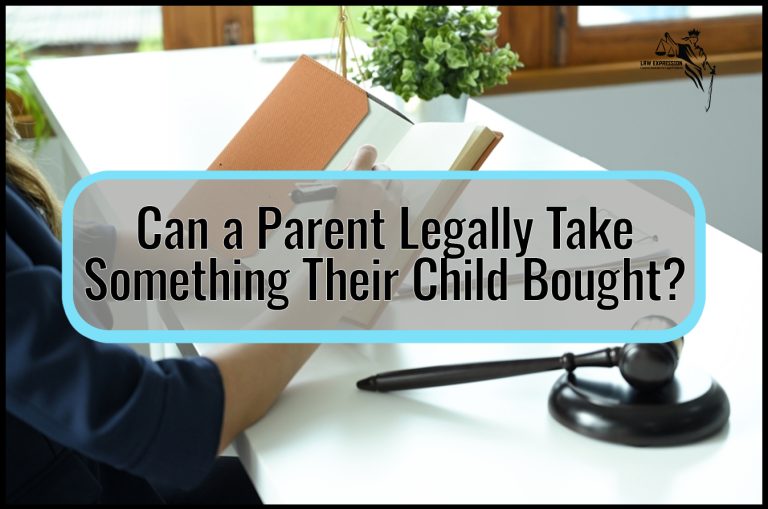How to Disown Your Parents at 18?
It’s a pretty big deal to disown your parents. It means you’re severing all ties with them emotionally, mentally, and physically. You’re essentially saying that you don’t want them in your life anymore and that you never want to see or speak to them again.
If you’re considering disowning your parents, there are a few things you should keep in mind. First, it’s important to be absolutely certain that this is what you want. Once you disown your parents, there’s no going back.
Second, make sure you have a solid support system in place before you take this step. This could include close friends or family members who can provide emotional support during this difficult time. Finally, be prepared for the legal implications of disowning your parents.
In some states, this could mean giving up any claim to their estate or inheritance.
- Talk to your parents about your feelings and explain that you want to disown them
- If they don’t listen or try to talk you out of it, then write a letter expressing your intention to disown them
- Send the letter by certified mail so that you have proof that they received it
- Finally, cut off all communication with them and move on with your life
What are the Legal Ramifications of Disowning Your Parents at 18
In the eyes of the law, disowning your parents means that you are permanently severing all legal ties with them. This means that you will no longer be obligated to provide them with financial support or have any legal responsibility for their wellbeing. Additionally, they will no longer have any claim to your estate or inheritance should you pass away.
While disowning your parents may seem like a simple way to cut ties with them, there can be some serious legal ramifications that you should be aware of before taking this step. For starters, if you live in a state that recognizes filial responsibility laws, then disowning your parents could actually put you at risk of being sued for their unpaid bills or medical expenses. In some states, children can be held legally responsible for providing financial support to their indigent parents – even if they’ve been estranged from them for years.
So if your parents are relying on you for financial assistance and you suddenly cut off all contact with them, you could find yourself facing a lawsuit down the road. Additionally, disowning your parents can also have implications for your own future health and well-being. If something happens to your parents and they need medical treatment but don’t have insurance, hospitals may try to bill you for their care since you’re next of kin.
And if they end up in a nursing home without enough money to pay for it, again, the burden could fall on them financially. Of course, there are also emotional ramifications to consider when disowning your parents. This is a permanent decision that shouldn’t be made lightly – after all, they are still your flesh and blood regardless of how strained your relationship may be.
Once you sever all ties with them, there’s no going back so make sure you’re 100% certain this is what you want before taking any action.

How Will This Affect Your Relationship With Your Siblings, If You Have Any
Siblings can have a big impact on our lives – for better or for worse. They’re the people we grow up with, learn to fight and argue with, and (hopefully) develop strong bonds with. So it’s no surprise that our relationships with them can be complex and intense.
If you’re thinking about having a baby, it’s worth considering how this will affect your relationship with your siblings. Here are a few things to think about:
1. Jealousy is common but doesn’t have to ruin things. It’s natural for siblings to feel jealous when one of their brothers or sisters becomes a parent. After all, they’re used to being the center of attention and now they have to share you with someone else!
This jealousy can manifest itself in different ways from acting out and misbehaving, to withdrawn and sullen behavior.
However, it doesn’t have to ruin your relationship. With patience, understanding, and communication, you can help your sibling adjust to the new situation and still maintain a close bond. It might even make your relationship stronger in the long run!
2. You might become closer or distance yourself more Having a baby can change the dynamic between siblings in different ways. Some people find that they become much closer after becoming parents themselves they understand each other in new ways and can offer support and advice on parenting issues.
Others might find that they start to distance themselves more from their siblings, as they focus on their own families instead. There is no right or wrong here it all depends on individual personalities and circumstances.
3. You may need to set some boundaries Parenting is a full-time job (plus some!) so you might not have as much time for your siblings as you used to.
That’s why it can be important to set some clear boundaries early on otherwise, resentment could build up on both sides if one person feels like they’re always doing all the work (or not getting enough attention). Of course, these boundaries should be flexible enough to allow for special occasions or emergency situations!
4. But don’t forget about them entirely! Just because you’re busy doesn’t mean you should neglect your relationship with your siblings altogether!
What About Financial Support
What about financial support?
There are a few options for financial support when it comes to college. One option is to take out student loans.
Another option is to apply for scholarships and grants. And finally, you can always look into working part-time or full-time while you are attending college.
Taking out student loans should be your last resort when it comes to paying for college.
This is because you will have to pay back the loan with interest, which can end up costing you more in the long run than if you had just paid for college outright. However, sometimes taking out a loan is unavoidable and in that case, you should make sure to shop around for the best rates and terms before signing on the dotted line.
Applying for scholarships and grants is a great way to get free money for college that you do not have to pay back.
There are many different types of scholarships and grants available, so it is important that you do your research in order to find ones that you may be eligible for. The sooner you start looking into these options, the better off you will be.
Working while attending college can also help alleviate some of the financial burden associated with paying for school.
If you are able to find a part-time job that pays well and does not interfere with your studies too much, then this may be a good option for you. Just make sure that you do not overwork yourself as this could lead to burnout and poor grades.
What If You Regret Disowning Your Parents Later on
It can be difficult to repair the relationship with your parents after you’ve disowned them. You may regret your decision later on and feel guilty about the pain that you’ve caused them. It’s important to remember that your parents are still your family, and they will always love you no matter what.
If you’re feeling lost and alone, reach out to them and try to mend the rift. It won’t be easy, but it’s worth it.
7 Signs You Have Toxic Parents – Part 1
Legally Disown Your Parents
It may not be something you ever thought you’d consider, but there are actually a few reasons why someone might want to legally disown their parents. Maybe your relationship with them is so toxic that it’s negatively impacting your mental health. Perhaps they’ve been abusive—physically, emotionally, or both.
Or maybe they simply don’t support you and your lifestyle choices. Whatever the reason, if you’re thinking about disowning your parents, it’s important to understand the legal process and potential implications. Here’s what you need to know.
In most states, adults can disown their parents through a formal renunciation process. This usually involves filing a petition with the court and appearing before a judge to state your intention to sever all ties with your parent or parents. The court will then enter an order reflecting your decision.
Once you’ve been legally disowned, your parents will no longer have any legal obligations toward you—including financial support. And while they also won’t have any legal rights when it comes to making decisions about your health care or welfare, in practice, this may not always be the case. For example, if you end up in the hospital and unable to make decisions for yourself, your parents may still be able to step in and make medical decisions on your behalf unless you have specifically designated someone else (such as a spouse or sibling) to do so in writing ahead of time.
It’s also worth noting that even though you may be legally disowned from a parental perspective, depending on state law, this doesn’t necessarily mean that you are no longer considered their child for purposes of inheritance—meaning they could still leave you money or property in their will (although some states allow adults who have been disowned to disclaim such inheritances).
Conclusion
In the United States, adults are legally allowed to disown their parents. There are a few different ways to go about this, but the most common is to file for emancipation. This can be done if the child is over the age of 16 and can prove that they are capable of supporting themselves financially.
The court will then decide whether or not to grant emancipation. If it is granted, the child will be legally responsible for themselves and will no longer have any obligations to their parents.


